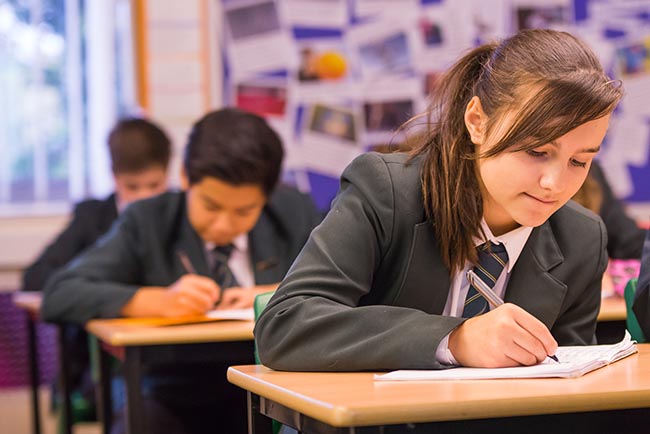Welcome to the Mathematics Department
|
|
|
|
|
|
|
|
What is Maths and why is it important?
The world is full of Maths! It’s how we tell the time, measure distance, and pay for things. Maths is part of the way we think and organise our lives. Maths is the study of numbers and problem-solving. In Maths, students learn how to use a range of mathematical skills to solve problems, think analytically and better understand the world around them. Mathematical skills are transferable to all subject areas and essential for further study and work.
What do students learn in Maths?
|
|
|
|
|
|
We encourage students to calculate in a variety of contexts so that they develop their problem-solving skills, numeracy, and fluency in Maths.
Challenge and support in Maths
Students are challenged in maths through appropriately set work. Students are set by ability and the work set is at the right ability for the student. The work in classes is differentiated and students cover the same topic. Some students will get further than other students on each topic dependent on their starting point.
There are regular assessments to ensure that learning has taken place and the teacher will adapt the schemes of work to meet the needs of their learners.
Students who find maths difficult are well-supported with a variety of early intervention on topics that are identified as in need of some extra support. Students are supported in maths through the classes they are in and the differentiation of the work. Resources are carefully chosen to meet the needs of the students in front of each teacher.
How is Maths assessed?
Students in KS3 are assessed using regular checkpoint activities and end of topic assessments. Numeracy skills are assessed weekly. Teachers record formal assessments centrally, to inform future lesson planning and support.
In GCSE Maths (Y9 onwards), students prepare to complete the Edexcel GCSE Mathematics exams. Students complete larger summative assessments at the end of each term, with smaller assessments at the end of topics. Attainment is measured against the exam boards GCSE criteria. GCSE Maths has 2 tiers of entry, foundation (up to grade 5) and higher (grade 5-9). Assessments are used to inform the decision about tier of entry.
Learning beyond the classroom
Students from all years take part in the National Challenge run annually by the UK Mathematics Trust, and we also send students to local Maths challenges, competing against other schools. We have run the Mathematics house competition this year for all year groups.
Members of the Maths team run a Chess club on a Friday lunchtime and students often ask if they can play chess on other days, which we happily accommodate.
Homework is set weekly and will be a combination of lesson consolidation activities, revision of previous topics or general maths practice.
Where can Maths lead?
Maths is required for many career paths. Careers that often require high mathematical competence include: auditors, software developers, statisticians, actuary, financial roles, teachers, economists, accountants, data scientists and surveyors.
Please use the links below to look up any of the careers above and to find many other careers that involve Mathematics.


